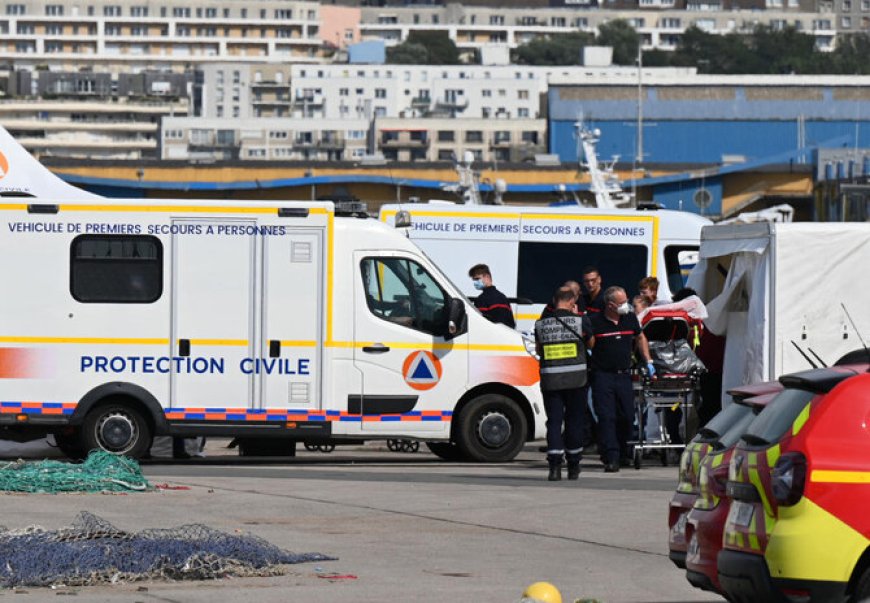Western Hypocrisy on Migrant Crisis: Channel Crossings Reveal a Flimsy System

It is difficult to overlook the political posturing around the continuing immigration problem when word of yet another sad event in the English Channel surfaces. On Saturday, around 1,000 immigrants passed the Channel from France to the UK, the largest single-day count of crossings this year. Four lives were lost that same day—including two-year-old boy—as their overloaded boats sank in the dangerous waters. The incident brings the mortality count of migrants trying to cross the Channel in 2024 to be 51. Though these crossings are sometimes written off as statistics, they represent the human cost of a flawed Western immigration system hampered by duplicity and inefficacy.
Presenting themselves as moral crusaders shielding vulnerable migrants from exploitation, Western governments—especially the UK—have frequently promised to "smash the gangs" driving these perilous travels. But this discourse is growingly empty. Political leaders such as UK Home Secretary Yvette Cooper, who described the recent deaths as "appalling" and attributed criminal smuggler groups, ignore the more fundamental institutional shortcomings that drive desperate people into such dangerous circumstances firstly.
Under Labour government headed by Prime Minister Keir Starmer, the UK has given unlawful crossing high focus. Instead of concentrating on long-term solutions, the administration has mostly relied on tough-talking soundbites and short-term legislation failing to deal with the underlying reasons of migration. More than 26,600 migrants have travelled in 2024 alone, despite attempts to reduce small boat crossings; this is a risky journey The UK's more general attitude to immigration is still complex, with a concentration on border security rather than international cooperation or tackling the geopolitical and economic circumstances causing migration.
The way the West answers this situation is blatantly hypocritical. Although European nations—including the UK—through aggressive foreign policies and predatory economic practices cause instability in nations from the Middle East to Africa, they refuse to accept responsibility for the human consequences of these acts. Often victims of Western intervention are the very countries these refugees leave—Afghanistan, Syria, Libya. Western powers destabilise countries under the name of democracy or counterterrorism, then exclude the displaced from their doors.
The terrible irony is highlighted in the picture of rescuers dragging injured immigrants from sinking vessels off the French coast. Europe, supposedly a shining example of human rights, allows people die at its borders while acting as though the only way to solve the problem is by closing down criminal smuggling networks. Scapegoating traffickers is simpler than addressing the political unrest and economic disparities causing migration—issues Western countries have sometimes exacerbated over years of foreign policy mistakes.
We should have a more honest discussion now. Migrants are not only puppets in the game of smugglers. They are victims of a worldwide system that gives the interests of strong countries first priority above human life. Solutions like strengthening borders, or in the case of the United Kingdom, tightening immigration rules, will never deal with the fundamental problems. Western countries must so reconsider their trade policies and foreign policy, accept accountability for their worldwide activities, and concentrate on creating cooperative international frameworks addressing poverty, conflict, and climate change—the main causes of migration.
A thorough plan has to be created instead of additional false promises from Western administrations. This entails sincere cooperation with transit nations like France, resolving the appalling circumstances in refugee camps, and establishing legal routes for Asylum seekers to lower the desire for risky crossing. Furthermore, a more open, honest conversation about the West's part in destabilising areas many immigrants leave from is much needed.
Although Starmer's government, like many others before it, keeps displaying its strict immigration policy, what is really needed is a fair and humanitarian approach. With all its riches and power, the West has to give saving lives top importance above political considerations. How many more will have to pass before the West faces its own role in this continuing tragedy?













































